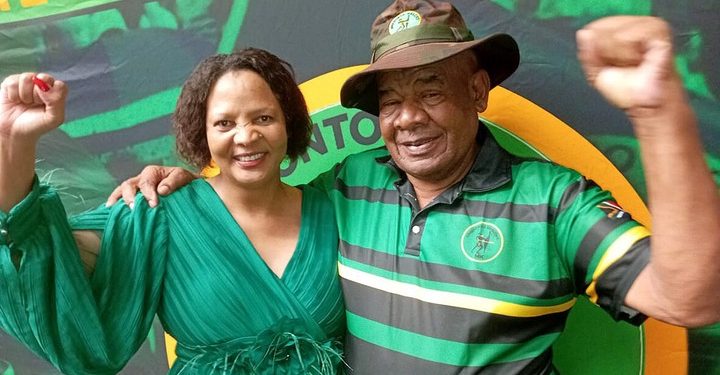Mary Phadi, the former Mpumalanga convener of the MK Party, has declared her unwavering commitment to the organization despite being removed from her leadership position by party founder Jacob Zuma. In a powerful statement of resilience, Phadi emphasized that true leadership transcends official titles.
“If the party no longer requires me to lead, it doesn’t stop me from being a leader,” Phadi told journalists. “Leadership is proven through action, not position.” Her remarks highlight an ongoing tension within the party between formal structures and organic leadership.
The political veteran, whose removal has sparked debate within MK Party circles, framed her continued involvement as service rather than rebellion. “My work has always been about the people, not the title,” she said, referencing her track record of grassroots mobilization in Mpumalanga.
Political analysts see Phadi’s stance as significant for several reasons:
1. It demonstrates the complex dynamics in Zuma’s young party as it transitions from liberation movement to political organization
2. It raises questions about internal democracy versus centralized leadership
3. It shows how seasoned politicians navigate political setbacks
A party insider, speaking anonymously, suggested Phadi’s removal may relate to differing visions for provincial structures rather than performance issues. “Comrade Mary built strong foundations. This is about alignment, not capability,” the source explained.
Phadi’s case echoes broader challenges facing the MK Party as it balances revolutionary ethos with institutional development. Her pledge to continue serving “in whatever capacity needed” presents both an olive branch and a quiet challenge to the party’s current direction.
As the MK Party prepares for upcoming local elections, observers will watch whether the organization can harness the energy of leaders like Phadi while maintaining cohesion. Her story has become a talking point about the nature of political commitment in South Africa’s evolving landscape.
The party has not commented on whether Phadi might be assigned new responsibilities, but her public stance ensures she remains a influential figure regardless of formal position. This episode underscores how in South African politics, leadership often persists beyond official roles.






















